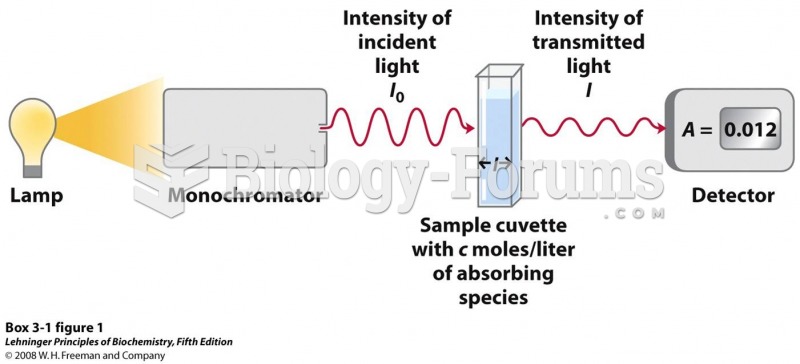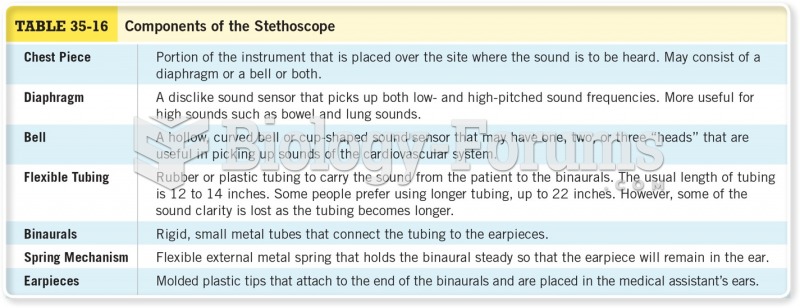|
|
|
Illness; diuretics; laxative abuse; hot weather; exercise; sweating; caffeine; alcoholic beverages; starvation diets; inadequate carbohydrate consumption; and diets high in protein, salt, or fiber can cause people to become dehydrated.
Amoebae are the simplest type of protozoans, and are characterized by a feeding and dividing trophozoite stage that moves by temporary extensions called pseudopodia or false feet.
People with alcoholism are at a much greater risk of malnutrition than are other people and usually exhibit low levels of most vitamins (especially folic acid). This is because alcohol often takes the place of 50% of their daily intake of calories, with little nutritional value contained in it.
Your chance of developing a kidney stone is 1 in 10. In recent years, approximately 3.7 million people in the United States were diagnosed with a kidney disease.
Asthma attacks and symptoms usually get started by specific triggers (such as viruses, allergies, gases, and air particles). You should talk to your doctor about these triggers and find ways to avoid or get rid of them.
 Feedback mechanisms of the thyroid gland: (1) stimulus; (2) release of TSH; (3) release of thyroid h
Feedback mechanisms of the thyroid gland: (1) stimulus; (2) release of TSH; (3) release of thyroid h
 Cortical EEG recorded during epileptic attacks. Notice that each trace is characterized by epileptic ...
Cortical EEG recorded during epileptic attacks. Notice that each trace is characterized by epileptic ...





